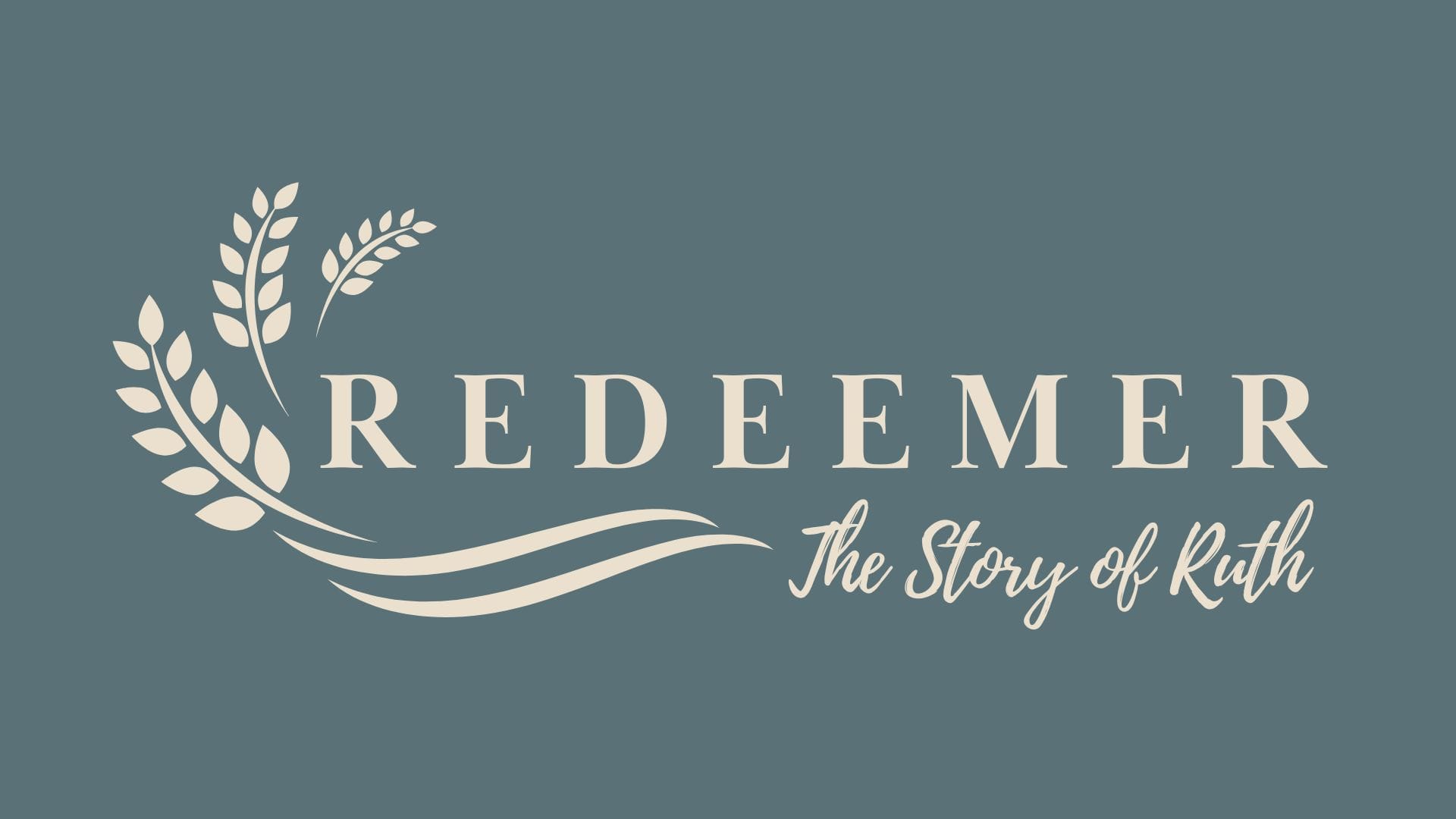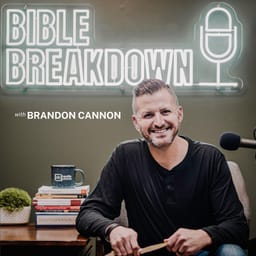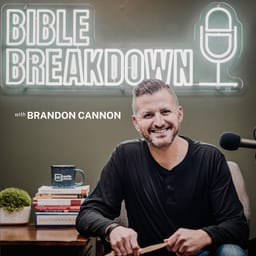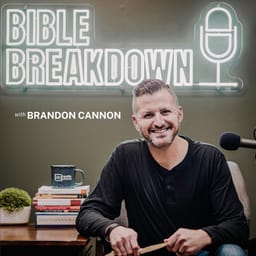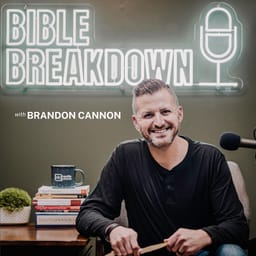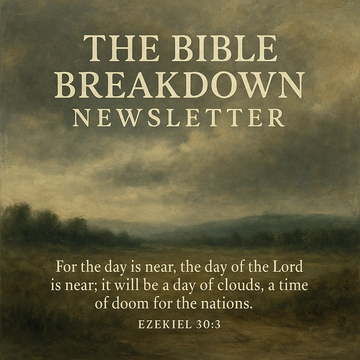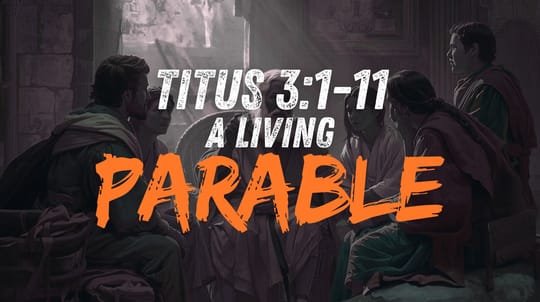Welcome to the first part of our series, "The Redeemer."
Text: Ruth 2:1-17
Now there was a wealthy and influential man in Bethlehem named Boaz, who was a relative of Naomi’s husband, Elimelech.
2 One day Ruth the Moabite said to Naomi, “Let me go out into the harvest fields to pick up the stalks of grain left behind by anyone who is kind enough to let me do it." Naomi replied, “All right, my daughter, go ahead.” 3 So Ruth went out to gather grain behind the harvesters. And as it happened, she found herself working in a field that belonged to Boaz, the relative of her father-in-law, Elimelech.
4 While she was there, Boaz arrived from Bethlehem and greeted the harvesters. “The Lord be with you!” he said. “The Lord bless you!” the harvesters replied. 5 Then Boaz asked his foreman, “Who is that young woman over there? Who does she belong to?” 6 And the foreman replied, “She is the young woman from Moab who came back with Naomi. 7 She asked me this morning if she could gather grain behind the harvesters. She has been hard at work ever since, except for a few minutes’ rest in the shelter.”
8 Boaz went over and said to Ruth, “Listen, my daughter. Stay right here with us when you gather grain; don’t go to any other fields. Stay right behind the young women working in my field. 9 See which part of the field they are harvesting, and then follow them. I have warned the young men not to treat you roughly. And when you are thirsty, help yourself to the water they have drawn from the well.”
10 Ruth fell at his feet and thanked him warmly. “What have I done to deserve such kindness?” she asked. “I am only a foreigner.”
11 “Yes, I know,” Boaz replied. “But I also know about everything you have done for your mother-in-law since the death of your husband. I have heard how you left your father and mother and your own land to live here among complete strangers. 12 May the Lord, the God of Israel, under whose wings you have come to take refuge, reward you fully for what you have done.”
13 “I hope I continue to please you, sir,” she replied. “You have comforted me by speaking so kindly to me, even though I am not one of your workers.” 14 At mealtime Boaz called to her, “Come over here, and help yourself to some food. You can dip your bread in the sour wine.” So she sat with his harvesters, and Boaz gave her some roasted grain to eat. She ate all she wanted and still had some left over.
15 When Ruth went back to work again, Boaz ordered his young men, “Let her gather grain right among the sheaves without stopping her. 16 And pull out some heads of barley from the bundles and drop them on purpose for her. Let her pick them up, and don’t give her a hard time!” 17 So Ruth gathered barley there all day, and when she beat out the grain that evening, it filled an entire basket.
God uses the FAITHFULNESS of ordinary people to REDEEM people in extraordinary ways.
Overall Commentary: 🌎
One of the most significant issues we have when reading the Old Testament is ethnocentrism. The definition of ethnocentrism is:
- Evaluation of other cultures according to preconceptions originating in the standards and customs of one's own culture.
It isn't easy to understand why the story of Ruth is so special because we live in such a different time. During Ruth's time, Naomi was in a desperate situation and had lost everything. She needed to be rescued. God did that and started a journey that would end with the birth of Jesus.
God uses ordinary means to do extraordinary things.
This is never more true than in the book of Ruth. Ruth has been called a master storyteller. It tells a big story in just a few words. The story's bottom line is that God can do more than we could ever imagine if we trust Him.
Commentary
Verse 1.- Meanwhile.
The first is the author connecting the sadness of the first chapter to the rest of what is going on. This is the author's way of reminding us that more was happening. It's not an accident that the author introduces Boaz at the bottom of the story. Boaz becomes God's method of salvation for Ruth and Naomi.
Boaz- His name means strength. The name "Boaz" was also used for one of the pillars in Solomon's Temple.
- Some historians think he could have been a retired military soldier.
- He was likely in his late 40s or 50s during these events.
- He was a relative. Possibly a cousin to Elimelech.
Verse 2-4. God Knows What's Up.
Verse 2.
"Let me go..."- shows Ruth's continued respect for Naomi. It also shows her courage. To be a foreigner and to go out by herself was to invite disaster during the time of the Judges.
"Pick up the stalks of grain..."- Deuteronomy set up a benevolence system for widows, orphans, and foreigners. Once a field had been harvested, they could collect all that was on the edges or left behind. This is all she can do since she is now at the bottom of the social class system.
"My daughter..."- Shows the respect Naomi is giving to Ruth. She has been accepted as family.
Verse 3.
"As it happened"- This is a wink by the author. He is saying it was a coincidence, but it was not a coincidence. The whole point of this book is to show God's providence through our faithfulness.
Verse 5-9. God blesses our Hard Work.
Verse 5.
How the author describes Boaz shows that He is a man of integrity. He greets his servants with kindness and notices when there is someone new.
Verse 6-7.
The foreman had noticed her hard work and used it to describe her to Boaz.
Verse 8-9.
"My daughter..."- This shows kindness toward Ruth. She was a foreigner but was being treated like an insider.
"Stay right behind my young women..."- She has gone from gleaning the edges to being able to glean along with the servants. This means she will be able to get enough to eat.
"I have warned the young men not to mistreat you."- This is during the judges' time. Those at the bottom of the social class had few protections. Many times, women would be assaulted, and nothing could be done about it. Boaz has ensured her safety.
"Help yourself to the water..."- Bethlehem has no natural water access. It has to be brought in through buckets and fields through irrigation. Water was highly valuable. Boaz is offering her a significant gift.
Verse 10-12. The Blessing of Humility.
Verse 10.
Ruth recognizes she does not deserve this. This is not because she thinks less of herself. Seeing how great the blessings are from Boaz is a matter of thankfulness.
Verses 11-12.
Boaz has heard of Ruth's difficult choices and faithfulness. It is why he is willing to bless her.
Verse 13-17. Blessed to be a Blessing.
Verse 13.
Her gratitude shows her sincere thankfulness and willingness to work for what she has. This probably impressed Boaz even more.
Verse 14.
Again, Boaz is showing his kindness. This could have been their lunchtime, which would have been the second largest meal of the day. Since Ruth was not a scavenger, she would not have brought lunch to eat. This was a blessing.
Verse 15-17.
Boaz is not being extravagant with his blessings. Ruth possibly does not realize it, but Boaz is making sure she goes home with more than she needs, and she does. The Hebrew translation of the amount she went home with was an ephah. That is the equivalent of a 5-gallon bucket full. This would have been enough to feed the two women for two weeks.
Bottom Line.
This chapter is the turning point of the story. God is faithful and is showing it to His people. He is doing more than they realize, and it keeps getting better. If we do our part, God always does His.
God's Promise:
(Galatians 6:9) So let’s not get tired of doing what is good. At just the right time we will reap a harvest of blessing if WE DO NOT GIVE UP.
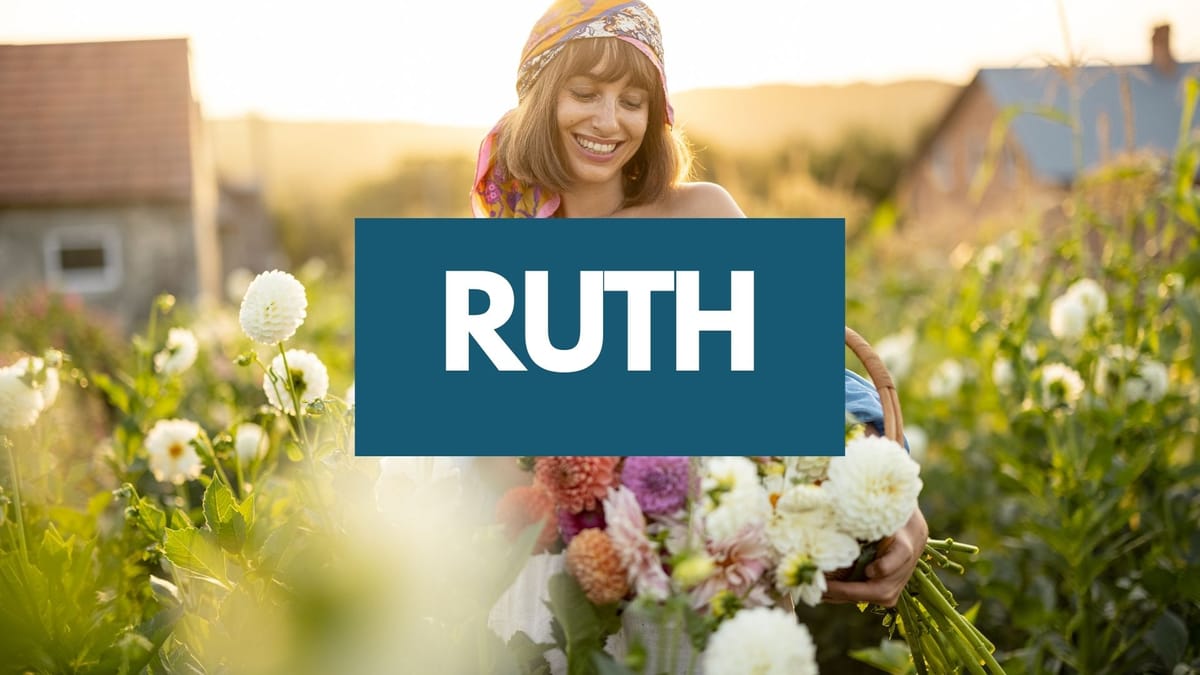
This is Ruth One.
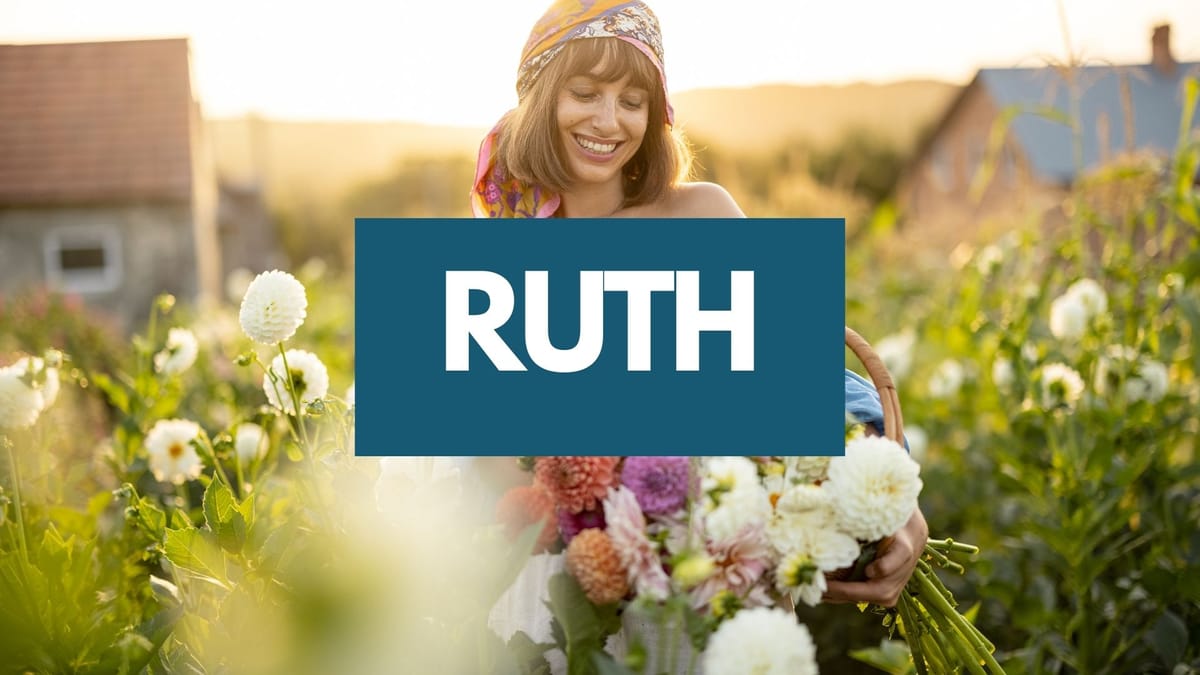
This is Ruth Two
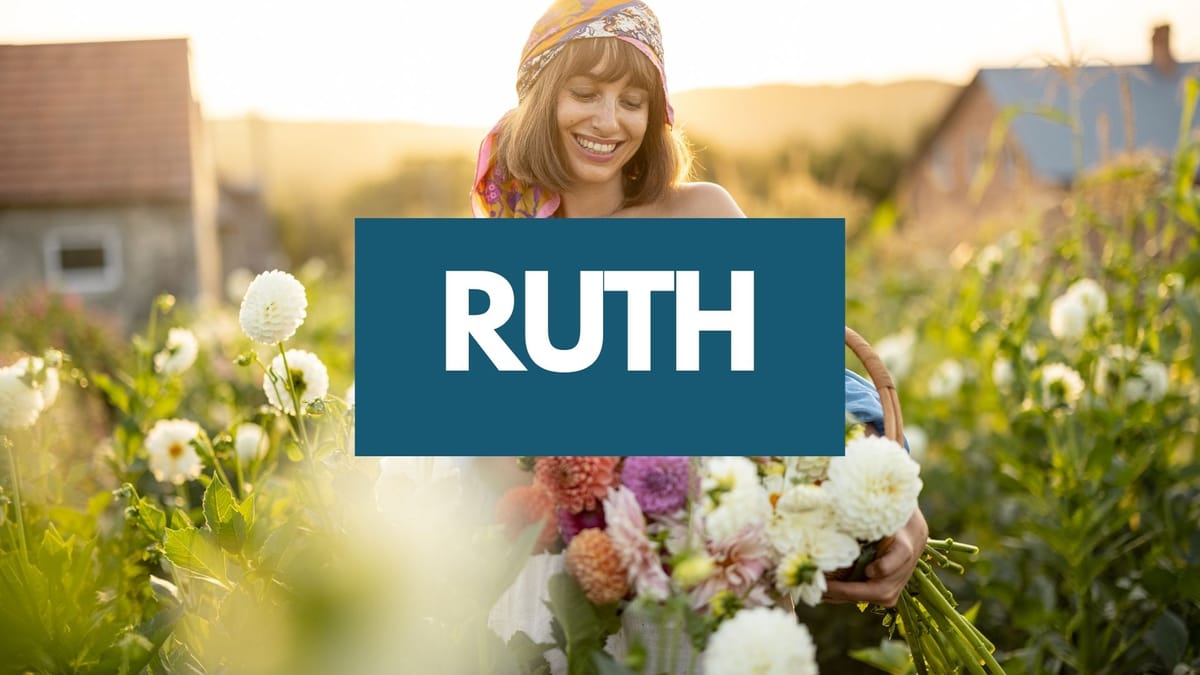
This is Ruth Three
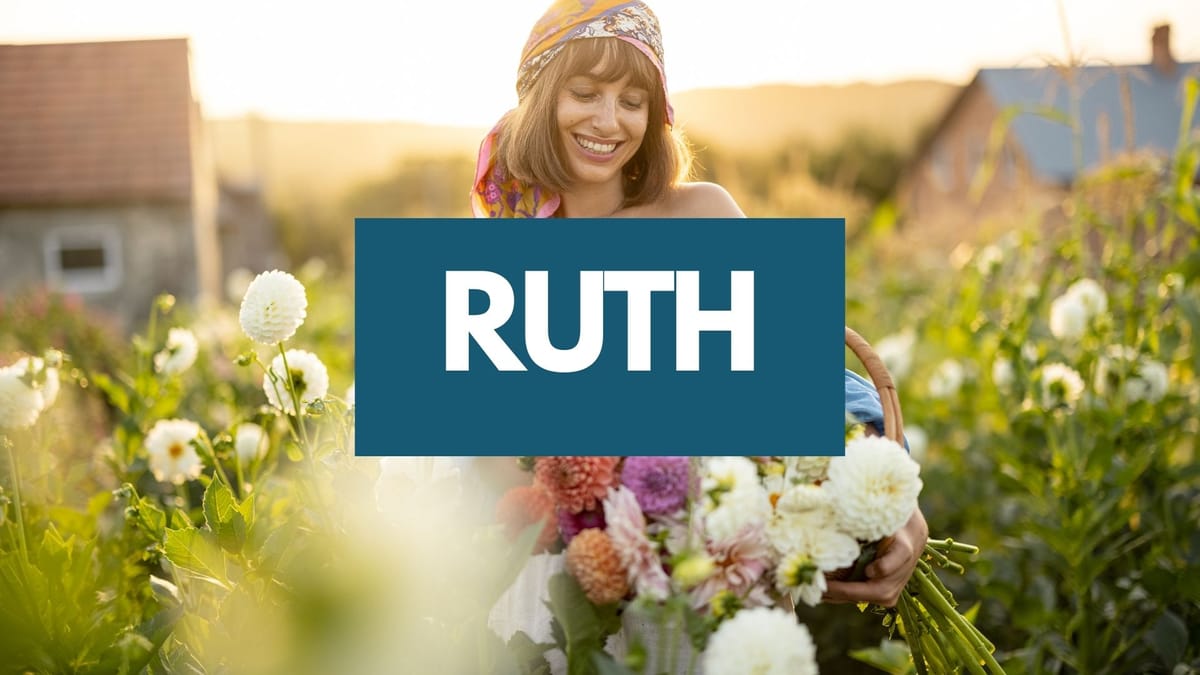
This is Ruth Four

